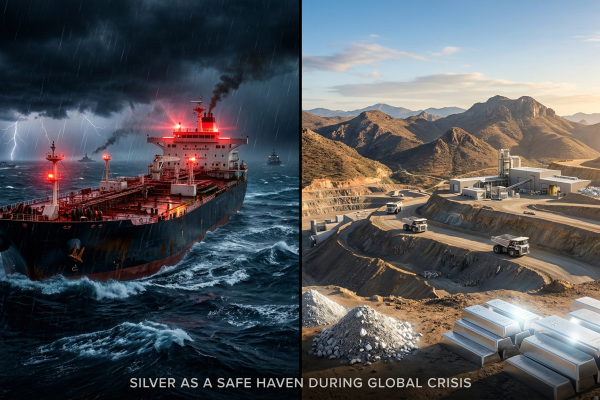September 5th, 2023 | 07:40 CEST
Climate revolution hanging by a thread: Siemens Energy, BASF, Manuka Resources
Most people agree that the economy must become climate-neutral. However, despite promising technologies, the path to climate neutrality is not without obstacles. Handelsblatt newspaper now quotes a joint study by three institutes, according to which seven raw materials are needed to master the transformation of the economy. These include graphite, rare earths, nickel, cobalt, iridium, lithium and manganese. The scientific community also recommends that policymakers promote the entire value chains of key technologies. We look at what this means and where investors can look for opportunities.
time to read: 3 minutes
|
Author:
Nico Popp
ISIN:
SIEMENS ENERGY AG NA O.N. | DE000ENER6Y0 , BASF SE NA O.N. | DE000BASF111 , Manuka Resources Limited | AU0000090292
Table of contents:

"[...] Recovery rates of more than 90% rare earths are another piece of the puzzle on the way to the economic viability of our project. [...]" Craig Taylor, CEO, Defense Metals
Author
Nico Popp
At home in Southern Germany, the passionate stock exchange expert has been accompanying the capital markets for about twenty years. With a soft spot for smaller companies, he is constantly on the lookout for exciting investment stories.
Tag cloud
Shares cloud
BASF: Recycling alone is not enough
In addition to regenerative energies, researchers have identified lithium batteries for electromobility, permanent magnets, electrolysers, heat pumps and plants for the production of green steel as "particularly relevant key technologies". These areas were selected based on various criteria, with a central focus on the potential for CO2 savings and current dependencies on individual production countries, such as China. The supply of relevant raw materials is crucial for companies like BASF to expand into new areas or make existing businesses climate-neutral. In this context, a circular economy is becoming increasingly important, and BASF, for example, sees great potential in this area.
Siemens Energy: Waste heat as a gold mine
While breaking down materials into their smallest components could even mean growth for the chemical giant, some manufacturing companies in high-tech industries are still skeptical. It is not uncommon for recycling to be considered too expensive or for the recycled material not to achieve the necessary quality to be used to manufacture high-tech products. In the area of using waste heat from industrial plants, however, companies like Siemens Energy are already offering solutions: Huge heat pumps harness waste heat and, in combination with generators, generate electricity.
Manuka Resources: Is this smallcap sitting on 15% of the vanadium supply?
While industrial companies such as BASF and Siemens Energy are already pushing ahead with projects, there is also some caution within industry to refrain from committing to individual technologies. Commodity companies are already being called upon to make landmark decisions. Australia's Manuka Resources has acquired the STB iron sands and vanadium project in New Zealand as early as 2021, demonstrating great foresight. Vanadium is considered a key raw material for large-scale power storage and infrastructure projects. Independent of the latest published study, vanadium is already considered a critical element in the US, EU and Australia. To date, vanadium has come predominantly from Russia and China - the New Zealand project, which Manuka Executive Chairman Dennis Karp believes could potentially produce 15% of the world's vanadium supply annually, fits the bill perfectly given the geopolitical environment.
In parallel, Manuka Resources offers two precious metals projects in Australia and a rock mill capable of processing materials from both mines. At the Mt Boppy project, there are extensive tailings piles that the Company needs to remove and process. No sooner is Manuka working in the ground than the team is finding gold - most recently, the project increased its gold resources by 360% and sees further potential beyond that. "Given the expected cash flow from our gold production, we are in a strong position to not only upgrade our suspected ounces to higher categories but also to continually expand the overall resource," said Manuka Executive Chairman Dennis Karp.
Manuka Resources: Precious metals business flushes capital into coffers
Despite the strong starting position from the promising vanadium project and the two precious metals mines that can generate cash flows, Manuka Resources has recently been forced to raise new capital. Professional investors have taken a stake in the Company and purchased new shares. In the wake of the move, which involved 3,700,000 shares at AUD 0.05, the stock has weakened and is now trading slightly below the level of the capital injection. Given the mainstays in the precious metals sector and the young but very promising STB project in New Zealand, which offers access to vanadium, the share is not uninteresting at the current level.
While companies like Siemens Energy and BASF are struggling with political conditions and cannot implement all their ambitious plans, especially in Germany, investors with foresight are taking the initiative in second-tier stocks, like Manuka Resources, and investing in the Company. Although it is unclear what the climate-neutral future will ultimately look like, it is well known that it will not be possible without certain critical raw materials. The large market share of China and Russia in vanadium argues for a closer look at Manuka Resources.
Conflict of interest
Pursuant to §85 of the German Securities Trading Act (WpHG), we point out that Apaton Finance GmbH as well as partners, authors or employees of Apaton Finance GmbH (hereinafter referred to as "Relevant Persons") may hold shares or other financial instruments of the aforementioned companies in the future or may bet on rising or falling prices and thus a conflict of interest may arise in the future. The Relevant Persons reserve the right to buy or sell shares or other financial instruments of the Company at any time (hereinafter each a "Transaction"). Transactions may, under certain circumstances, influence the respective price of the shares or other financial instruments of the Company.
In addition, Apaton Finance GmbH is active in the context of the preparation and publication of the reporting in paid contractual relationships.
For this reason, there is a concrete conflict of interest.
The above information on existing conflicts of interest applies to all types and forms of publication used by Apaton Finance GmbH for publications on companies.
Risk notice
Apaton Finance GmbH offers editors, agencies and companies the opportunity to publish commentaries, interviews, summaries, news and the like on news.financial. These contents are exclusively for the information of the readers and do not represent any call to action or recommendations, neither explicitly nor implicitly they are to be understood as an assurance of possible price developments. The contents do not replace individual expert investment advice and do not constitute an offer to sell the discussed share(s) or other financial instruments, nor an invitation to buy or sell such.
The content is expressly not a financial analysis, but a journalistic or advertising text. Readers or users who make investment decisions or carry out transactions on the basis of the information provided here do so entirely at their own risk. No contractual relationship is established between Apaton Finance GmbH and its readers or the users of its offers, as our information only refers to the company and not to the investment decision of the reader or user.
The acquisition of financial instruments involves high risks, which can lead to the total loss of the invested capital. The information published by Apaton Finance GmbH and its authors is based on careful research. Nevertheless, no liability is assumed for financial losses or a content-related guarantee for the topicality, correctness, appropriateness and completeness of the content provided here. Please also note our Terms of use.




